Inside each of us is a story of money. It is about a lot more than numbers—it is about our sense of self-worth, about power, influence, and security.
I had an idyllic childhood in the forest of Vermont. I was nurtured by gentle and wise parents, and my sister and I would frolic through pastures punctuated by abundant wild strawberries.
I was in fourth grade when I first felt poor. It was picture day at school, exciting for me, dressed up in my fanciest clothes. Something wasn’t right at the breakfast table. My parents were arguing, because there wasn’t enough money in the bank to cover the $24 for the large individual portraits which we purchased each year. Mom wanted to borrow money from her best friend who was wealthy; Pa refused. He was too proud.
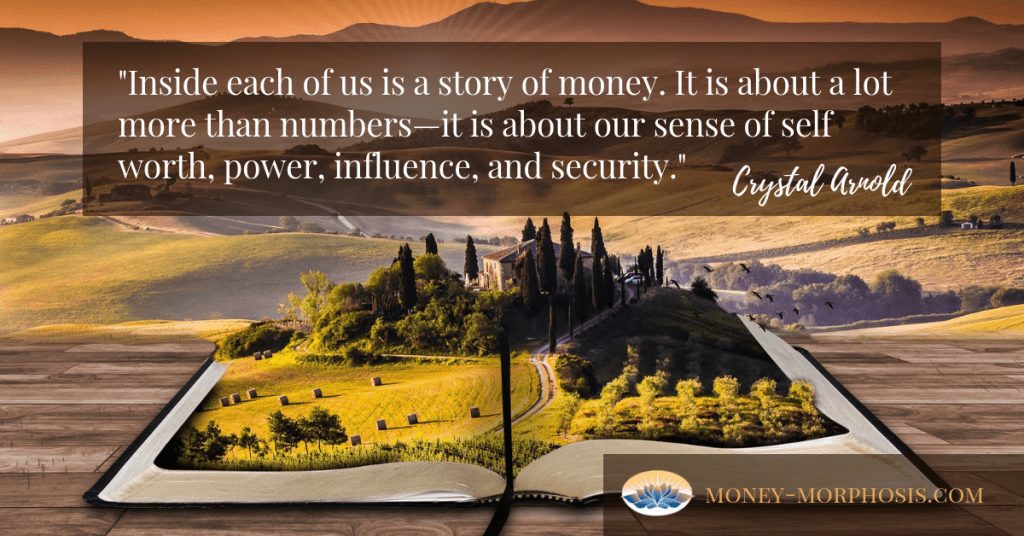
I went to school, my enthusiasm dampened. Our small class of only ten students had our group photo taken, and then everyone but me lined up to have their individual portraits taken. I slunk off to the corner, so embarrassed. I wished I was invisible. I was so ashamed that we couldn’t afford to have this photo taken like everyone else. I felt that pain of “not enough.”
Over the years, that feeling of “not enough” has haunted me. I have seen how money divides people in society, how wealthy people have privilege, and how few people talk about their poverty, as taboo as talking about sex or death.
When I was 22, I lived in Guatemala and shopped at beautiful markets from women wearing self-woven clothing, selling their handiwork and fresh produce. There wasn’t a price tag on anything! That made me very uncomfortable. They expected me to have a conversation about what the value was. For them, the relationship determined the value. The conversation was what gave meaning, it was back and forth. It was in the dynamic give-and-take that we settled on the price and made the exchange. I grew to love this way of being more intimate with people.
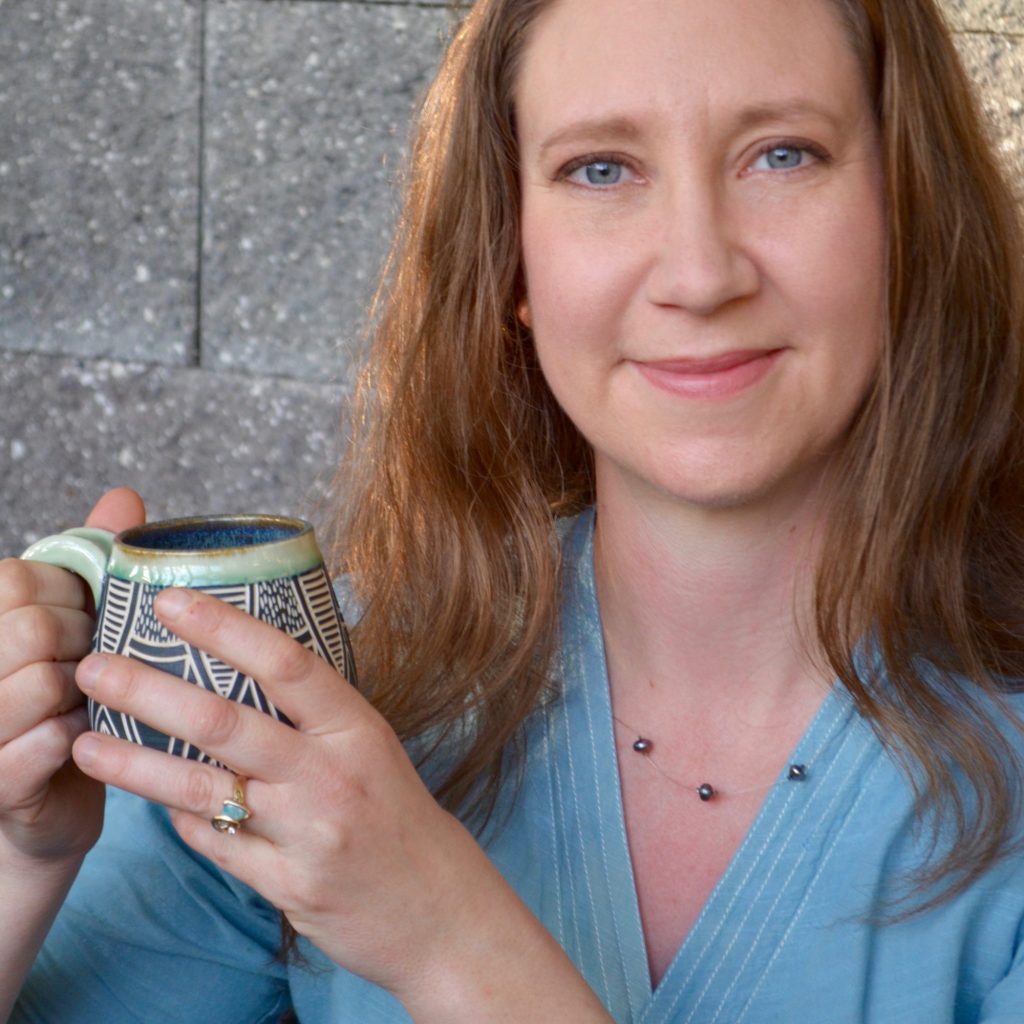
I returned from Central America and rented an apartment in Jackson Hole, Wyoming, statistically one of the very richest counties in the United States. Women in fur coats and diamonds came to apply for loans at the Bank of Jackson Hole, where I was executive assistant to the vice president. One month into the job, a stack of loan documents appeared on my desk. Suzy, the receptionist, told me that the previous CEO had just been accused of embezzling $1.5 million over the last decade. It was my job to copy the evidence against him. Looking through these forged documents, I imagined him on the final day of the annual federal audit of the bank when the lies were discovered. That night he tried to commit suicide. The anxiety and shame he must have felt! The fear of being discovered! What motivates someone to do this? Hunger for more. When is enough, enough? Greed compels us to seek more and more.
I returned to college to study money and graduated with my degree in international economics from Southern Oregon University. When my $30,000 in student loans came due six months later, I was shocked. While studying economics, I had neglected my own personal finance and money management. I took a course to learn these skills, and I began teaching workshops about creating a healthier relationship with money. Almost everyone I’ve taught is suffering in some way because of money, and there is extraordinary relief when we share our intimate stories and financial struggles.
In 2010, I said yes to the hardest job I’ve ever had. It’s physically and emotionally demanding, I’m on call around the clock, and there’s very little appreciation. I became a new mother. Motherhood is one of the least appreciated jobs, truly a labor of love. I’m supported by a loving husband and have healthy children and a helpful community. The first years of my two children were the hardest five years of my life. Much of the time I felt worthless. I was doing such valuable work, but I was receiving no money and very little acknowledgment from the outside world.
I remember nursing my infant in the wee hours of the morning. I heard a rumble in her diaper, and felt a familiar wetness on my hand. I took her to the changing table, and gently wiped that mustard colored poop from her back. There was no overtime pay for this work. It’s priceless. I’m grateful for the caretakers; the men and women who care for children and elderly parents are valuable beyond measure.
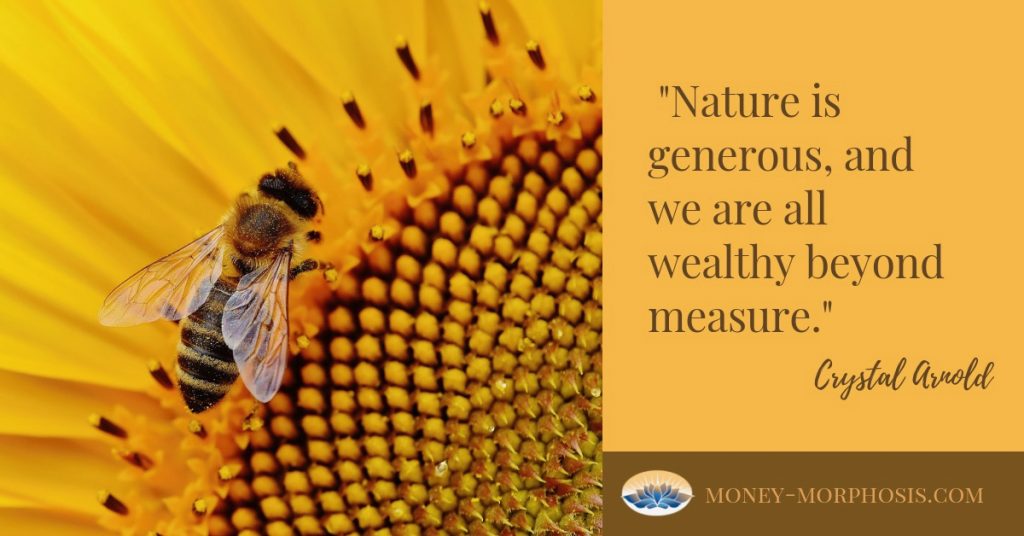
My children today are eight and five, and we cooperate to care for our land and each other. In my family we fluidly balance the offers and needs of everyone as we prioritize our resource use. This flow of sacred reciprocity is at the heart of family.
I now facilitate the “Offers and Needs Market” as the education director of the Post Growth Institute. We bring people together to barter, buy, and otherwise share and exchange their goods, knowledge, services, skills, etc. At our last Offers and Needs Market event with 70 people, matches were made for a free facial, an electric tea kettle, a geodesic dome for classroom space, help with moving, technical support, and a handyman.
I am truly wealthy, as is my family, as is my community. Nature is generous, and so are my children. So are my neighbors.
Each spring I transplant into my soil perennial flowers gleaned from the land of my neighbors. I will enjoy their beauty for years to come. As these flowers burst into bloom, they are valuable beyond measure because they were gifts.
The purple irises from Rachel’s garden, the dainty columbine from Deborah, the strawberries from Amy, raspberries and sunflowers from Carrie, the parsnips from Gideon, the echinacea from Ann; they are all stretching toward the light. The beauty of these plants unfurls in the warmth of the sun and our loving care. Much like our children.
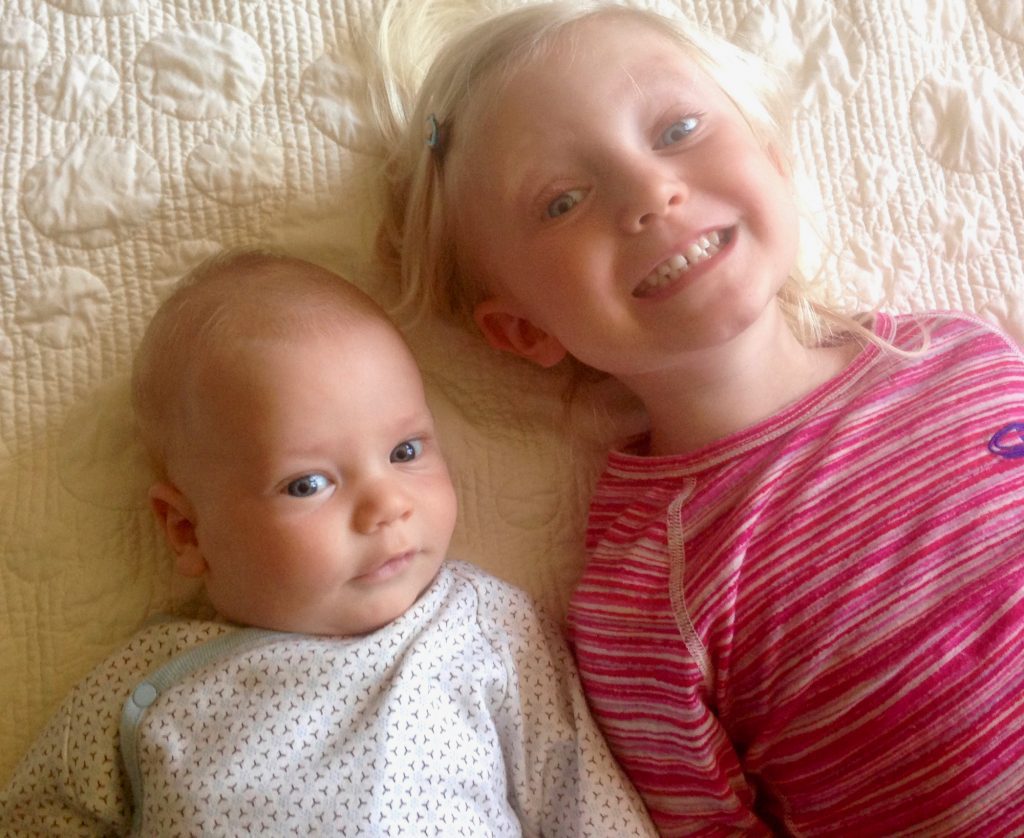
We moved onto our land nearly three years ago, and each spring is like welcoming familiar friends again as the plants emerge from their slumber.
Humans are made to tend to our gardens together. Each Sunday we have some neighbors over to work in the soil and feast together. We are so nourished by this time, brought back to the roots of belonging. We belong to this land, and she provides for us. The plants living on our acre by the creek swell and decay with the changing seasons.
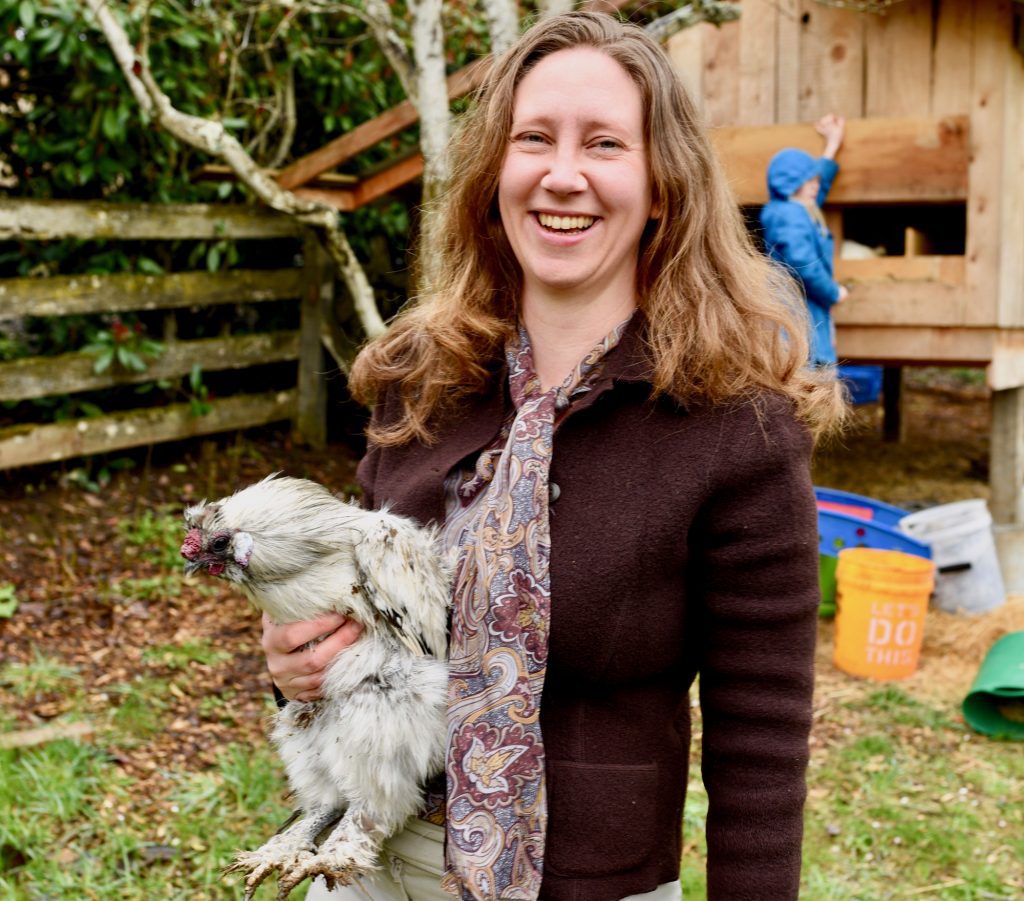
There is something special about being in relationship that can’t be measured in money. This is what makes life worth living. Last Thanksgiving we hosted over 30 people, some family but mostly neighbors. I looked around at the people who had brought carefully prepared dishes with such love and generosity, at the kids running and laughing and playing games, at the people playing music and having intimate conversations. I smiled as I witnessed our spirit of generosity and love, and this to me is true wealth. Honestly, we are all wealthy beyond measure.
Crystal Arnold, B.S. International Economics, is an author, inspirational speaker, and group facilitator, founder of Money-Morphosis and the “Money-Wise Women” podcast and Education Director of the Post Growth Institute.
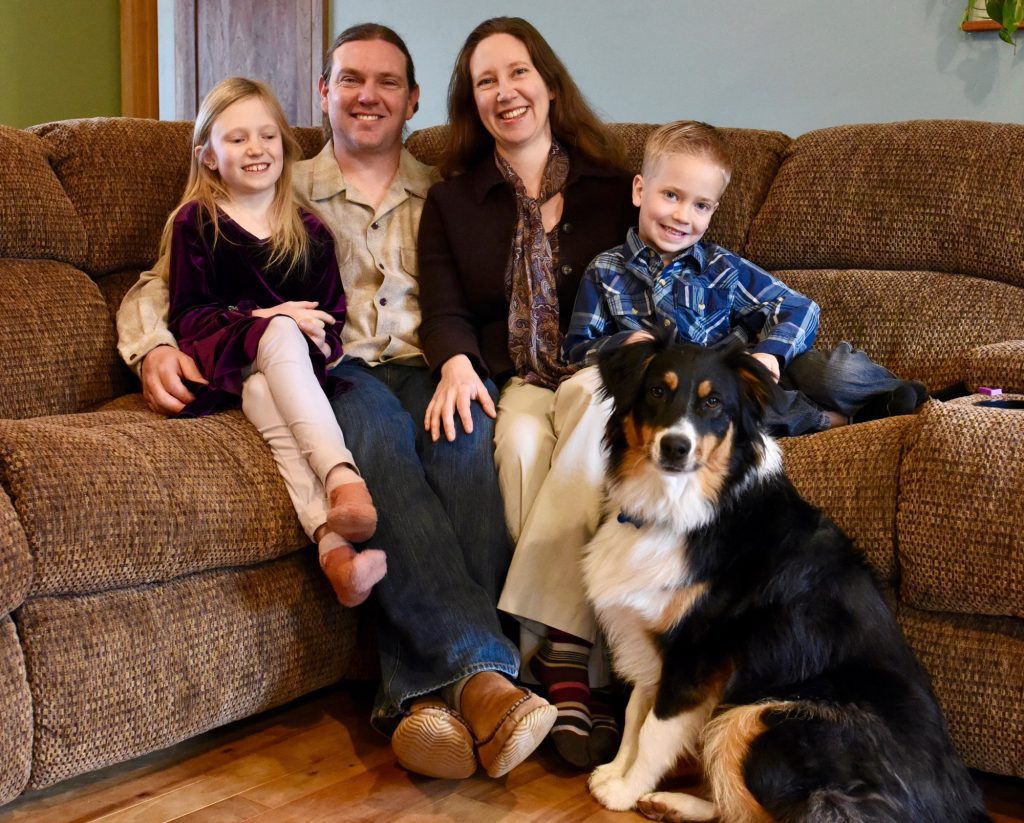
- Decolonizing Finance with Kat Taylor - November 22, 2019
- The Revolution Where You Live - July 7, 2019
- Finding Our True Wealth - May 20, 2019
Crystal Arnold holistic financial management Money Wise Women Money-Morphosis
I believe the single most important thing on standing rock is wind energy……
Standing rock needs wind energy…To help the low income families with freeeee electricity … especially in the winter months….